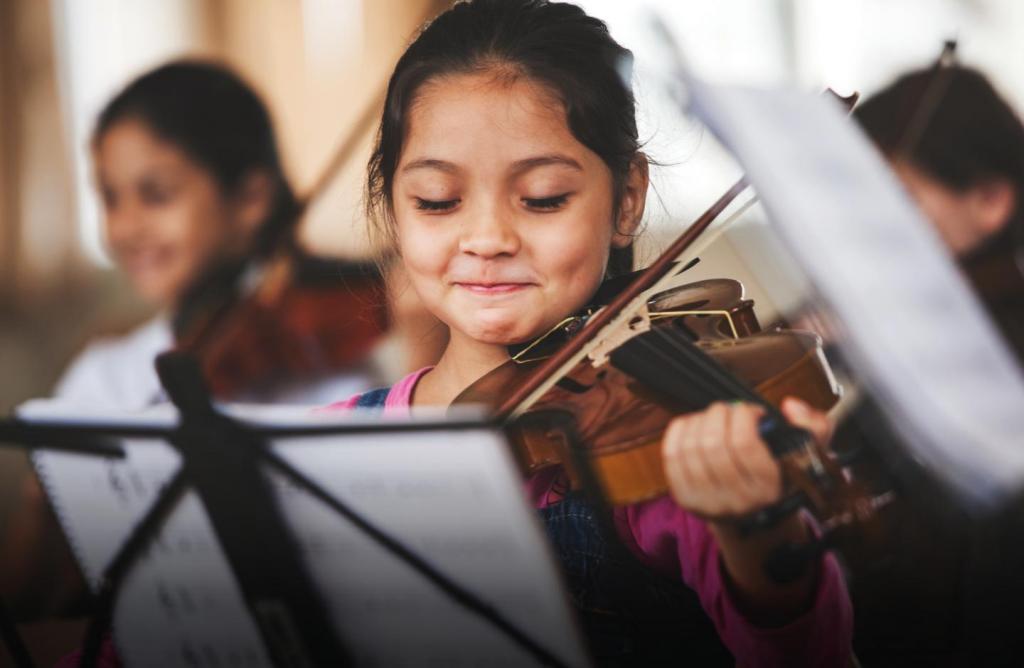The term spalla emerged in Italy to refer to a ladder that supported the main actor in a play. In an orchestra, the spalla is the person who is responsible for the first tuning of instruments on the stage and for providing support for the maestro. The Orchestrarium Project, which promotes social inclusion by providing free music classes, could be considered the spalla in the lives of dozens of children and youth from low-income neighborhoods in Santa Maria.
Envisaged by Marco Antônio Penna, professor at the UFSM Music Course, the project is linked to the Arts and Languages Center and was established in April 2013 in the Northern region of Santa Maria. Thanks to a social network campaign, the project received donations of instruments, making it possible to commence the classes in 2016 with 15 students. So far, the project has reached around 150 new musicians, providing children and youth from 6 to 29 years old with their first contact with violins, violas and cellos.

The classes take place as a before-or-after-school program and contemplate different arts, including music, dance and theater, as well as mathematics and Portuguese. On Saturdays, it also provides tutoring sessions for students who need extra help with school work, since good school performance is a requisite for playing in the main orchestra. In addition, the project coordinators are dedicated to working together with the families, due to the fragile reality of some of the children, who may face abandonment, abuse and violence.
The general coordinator, Mirian de Agustini Machado, says Orchestrarium is a social inclusion and integration project. Regardless of social class, integration is important so that people don’t realize, during rehearsals or recitals, which children are from families with a somewhat better economic situation and which ones don’t even have enough to put food on the table.
Throughout the year, several UFSM students share their knowledge with the children and youth. According to Mirian, undergraduate students from the Music, Languages and Dance courses work as volunteers, forming the big Orchestrarium family. She believes the contact with university students creates new perspectives in the minds of the young musicians and fosters the desire to also go to a university one day, especially to study music.
For 15-year-old violist, Luan Levi, the biggest change he experienced after participating in the project was in his family. “People start to see you differently because you start to have knowledge they don’t have.” Hemelayne Lima, who plays cello, dreams of getting into the UFSM Music Course and wants to continue participating in the project when she reaches that stage. She explains that she wants to help incoming students the same way she was helped when she started.
Because of the difficulties involved in obtaining instruments and transporting the students to rehearsals and presentations, the Orchestrarium Project seeks financial support through public funding and from parents and collaborators. The main goal is to continue to intervene in the lives of children and youth and provide more and more opportunities for them to step onto a stage or become university students for the first time.
Reporter: Andressa Foggiato
Graphic Design: Kennior Dias and João Vitor Bitencourt
Photographer: Rafael Happke
Published 2017



